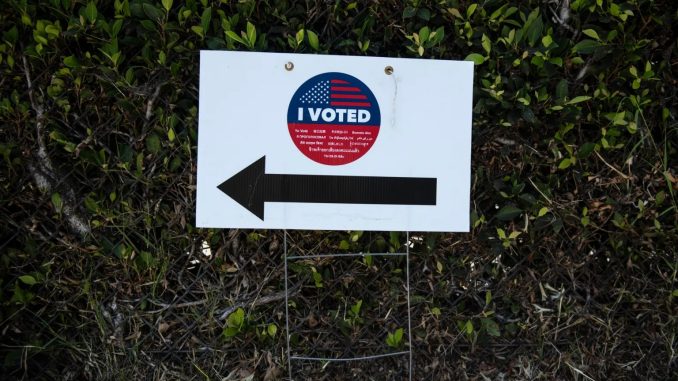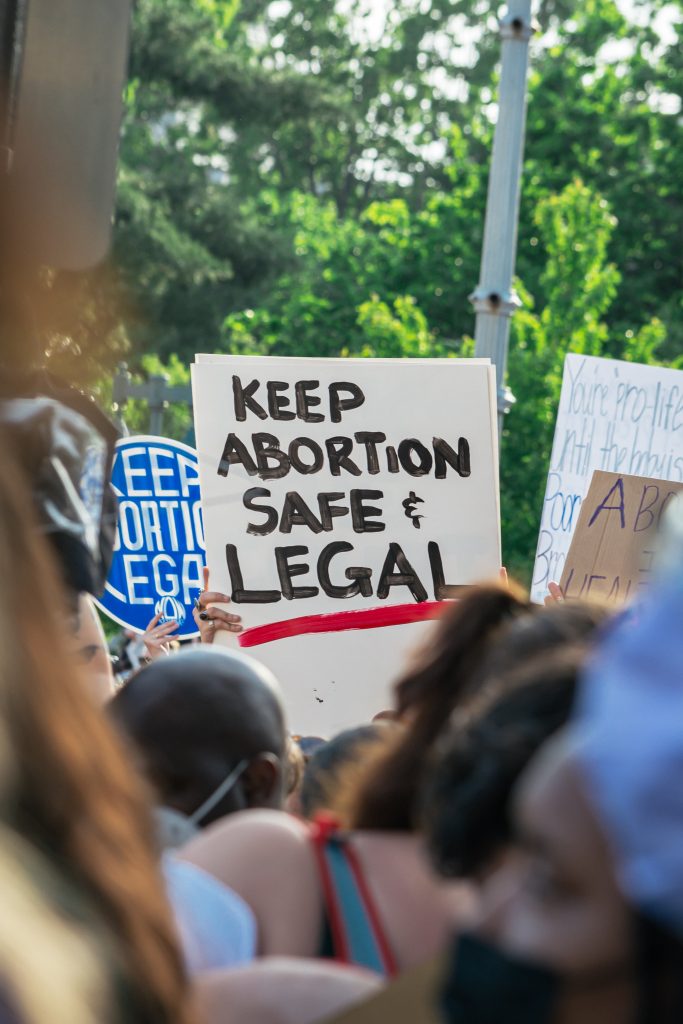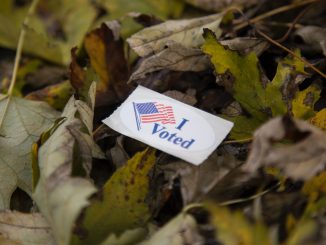
By Ben Christopher, Sameea Kamal and CalMatters staff (for Cal Matters)
CalMatters is an independent public journalism venture covering California state politics and government. For more info, visit calmatters.org.
This feature is part of the CN&R’s Oct. 6 Election Issue. For more stories on the 2022 general election click here.
After months of signature gathering, fundraising and legislative wrangling, we have details on the ballot measures that you can vote on this election.
Proposition 1, putting abortion safeguards in the California constitution: After the news leaked in early May that the U.S. Supreme Court was planning to rule that the federal constitution doesn’t guarantee the right to an abortion—and it did reverse the five-decade-old precedent on June 24—California’s top Democrats, vowing to “fight like hell,” proposed adding the protection to the state constitution. The proposed constitutional amendment was introduced in the Legislature in early June and was passed with the overwhelming support of both chambers by the end of the month. If approved by the voters, it would bar the state from denying or interfering with a person’s right to choose an abortion and contraceptives.
California has long been a safe haven for abortion access. In 1969, the state Supreme Court ruled that the California constitution’s right to privacy implies the right to an abortion. Reproductive access is also protected by statute. Supporters hope this amendment will reiterate that policy more explicitly and render it harder to reverse in the future, though some legal scholars say the language is still too ambiguous.
Propositions 26 and 27, legalizing sports gambling (two ways): After the U.S. Supreme Court struck down a federal law banning state-regulated sports betting, two big-spending interests stepped up with California legalization proposals.
Prop. 27 would allow Californians to bet on sports and other competitions online, but only through certified gaming tribes and large, well-established online betting companies. The measure, funded by industry giants FanDuel and DraftKings, would potentially direct hundreds of millions of dollars in fee revenue to housing and services for homeless Californians.
Prop. 26, supported by some of the state’s tribal governments, would only legalize sports betting in-person at tribal casinos and designated horse tracks. The measure, which also would allow tribes to offer roulette and other dice games, would raise potentially tens of millions of dollars for the state budget, most of which would be spent at the discretion of the governor and Legislature.

Proposition 28, set aside school funding for arts and music: Sponsored by former Los Angeles Unified School District Superintendent Austin Beutner, this measure would require the state to set aside a share of its revenue—likely between $800 million to
$1 billion per year—for arts and education classes. The new money would be disproportionately reserved for schools with many low-income students to hire new arts staff.
Proposition 29, Kidney clinic rules (third time a charm?): This measure slaps dialysis clinics with a host of new restrictions, including a requirement that a doctor, nurse practitioner or a physician assistant be on site during all treatment hours. Centers also would be required to get state approval before shuttering or reducing services and to publicly list any doctors who have at least a 5 percent ownership stake in a clinic. Sound familiar? That’s because the Service Employees International Union-United Healthcare Workers West, the union supporting this measure, has tried and failed to persuade voters to support new dialysis center regulations twice before, in 2018 and 2020, over vehement and very costly industry opposition.
Proposition 30, millionaires paying for electric cars: This measure would impose a new 1.75 percent tax on any individual’s income of more than $2 million per year to raise between $3 billion to $4.5 billion each year to fund a collection of greenhouse gas reducing initiatives. Most of the money would go toward new incentives for Californians to buy zero-emission vehicles and to build new electric charging or hydrogen fueling stations. (Lyft, which is required to move toward ZEVs, is a major funder). A quarter of the new money would go toward wildfire fighting and prevention efforts.
Proposition 31, reconsidering a flavored tobacco ban: In 2020, Gov. Gavin Newsom signed a bill banning the sale of all flavored tobacco products, whether smoked, chewed or vaped. The tobacco industry gathered enough signatures to ask voters to overturn the law with this referendum. (A reminder: Voting “yes” is to keep the law; voting “no” is to get rid of it.)
The arguments
Prop 1
For: Supporters argue that Proposition 1 will prevent California from going backwards on reproductive rights. By putting the right to abortion and contraception directly into the California Constitution, they say that reproductive health care always will be a medical decision, not a political one, no matter what party controls state government.
Against: Opponents say that Prop. 1 is unnecessary to protect reproductive rights in California but is written so broadly that it could face years of protracted court battles to clear up language, costing the state millions of dollars in legal fees. They raise particular concern that the measure would override state regulations that now limit abortions after the point when a fetus is viable on its own outside of the womb, at about 24 weeks of pregnancy. These late-term abortions are currently only legal if the health or life of the mother is threatened. Supporters say the measure does nothing to change that.

Prop 26
For: Supporters argue it will increase tribal self-sufficiency by bringing more business to tribal casinos. Tribal casinos create jobs, and help tribes pay for services like health care and education. Supporters also say it will protect against underage gambling by requiring people to be physically present to make bets and by prohibiting advertising to people under 21. They also say it will also generate money for the state of California.
Against: Opponents argue the new gaming law enforcement mechanism will be used by tribal casinos to sue competing card rooms and drive card rooms out of business. If that happens, they argue, it will lead to lost jobs and tax revenue, often in communities of color. Some casinos allow 18-year-olds to gamble, so opponents argue the initiative could lead young people to develop gambling addictions. They also argue it will revive the shrinking horse racing industry, which they say endangers horses.
Prop 27
For: Supporters say Prop. 27 would create a permanent source of funding to reduce homelessness and will allow every tribe to benefit—including tribes that decide not to offer sports betting. It would protect against underage gambling with fines for violators and would prohibit betting on youth sporting events.
Against: Opponents say that Prop. 27 would turn every cellphone and computer into a gambling device. They say it would escalate the risks of underage and problem gambling. They also say it would drive business away from tribal casinos and threaten tribal sovereignty because tribes would have to give up some of their rights in order to offer sports betting. And they argue that most of the money would go to companies in other states.
Prop 28
For: Beutner, the former L.A. Unified superintendent who donated more than $4 million to the campaign, and other supporters say that arts and music instruction could help address the mental health crisis facing California’s youth as they recover from the pandemic. Along with Beutner, supporters include Sylvester Stallone and other Hollywood stars and musicians such as Anderson.Paak and Barbara Streisand. Prop. 28 also has strong support from teachers unions, as the arts funding is expected to generate jobs for educators. Fender Musical Instruments donated more than $1 million to the campaign; Fender CEO Andy Mooney said the company has donated more than 10,000 guitars to L.A. Unified and hopes Prop. 28 will allow Fender to donate instruments to other districts.
Against: No official opposition filed.
Prop 29
For: Supporters argue that dialysis companies do not invest enough in patient care and safety despite being highly profitable. The hours-long process of removing blood, filtering it and returning it to the body is a physically draining process that leaves patients vulnerable to medical complications. Having a physician or nurse practitioner, in addition to current staff, available at all times could help reduce hospitalizations, proponents say. Meanwhile, adding reporting requirements would increase transparency in the dialysis business.
Against: Opponents say that this measure is unnecessary as clinics already provide quality care and have the needed staff to treat and monitor people. Patients also may reach their nephrologists via telemedicine if needed. Plus, opponents say, clinics already report infection data to the federal government. The opposition warns that these new requirements could result in dangerous consequences—adding physicians would increase costs for clinics, pushing some to potentially reduce hours or close.
Prop 30
For: Supporters say Prop. 30 would generate much-needed funding to address the state’s two leading causes of air pollution: gasoline-powered vehicles and wildfires. They say the money would help accelerate the transition to electric vehicles, beef up the state’s charging infrastructure and provide more resources to firefighters, who must work year-round to fight and prevent deadly wildfires. They argue that these investments will better put the state on track to meet its ambitious climate goals.
Against: Opponents say that Prop. 30 is an unnecessary tax hike that Californians don’t need because everyone is feeling the effects of high inflation and surging gas prices. They say Californians continue to grapple with exorbitant cost of living expenses and already pay some of the nation’s highest personal income taxes. They argue that the tax would drive many residents out of the state to benefit a special interest: ride-share companies. In his opposition, Gov. Gavin Newsom also calls the measure a “cynical scheme” by Lyft. In addition, many opponents say Newsom’s recent $10 billion climate investment and a $97.5 billion surplus in this year’s budget makes the state well-equipped to pay for the transition to electric vehicles and additional wildfire prevention efforts. If the state should need more money, opponents argue that it could tap into budget surplus funds to pay for these programs.
Prop 31
For: Supporters of Prop. 31 say the law prohibiting the sale of flavored tobacco products will protect youth because 80 percent of kids who use tobacco start with a flavored product. This law would prevent companies from targeting kids and teens with advertising for flavored products. Advocates of the law also say it will help lower smoking rates, especially among people of color, who experience higher rates of smoking-related illnesses. Some African-American groups say the tobacco industry has targeted their community for decades.
Against: Opponents say the flavored tobacco ban is unnecessary because there are already laws on the books prohibiting the sale of all tobacco products to minors. They argue that banning flavored tobacco products infringes on the rights of adults who use the products and say a prohibition would increase underground markets and lead to more crime. They also say this law is discriminatory against adults who use flavored tobacco to help them quit smoking, and especially against African-Americans who favor menthol cigarettes.



Be the first to comment